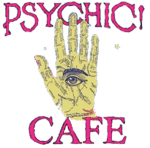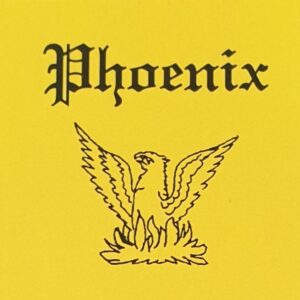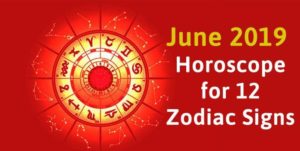Have you ever wanted to read your tea leaves for clues as to what the future has in store for you? We’ve covered the basics to get you started. You never know may even find out who your true love is…

Modern living can be demanding and we’d all like to be able to see what lies ahead.
Superstitious people see omens and signs all around them and it is an ancient human instinct to want to understand the universe. As such, people have always looked to fortune tellers, prophets and mystics to make sense of the world and to give some guidance to their lives.
Clairvoyants use many methods of divination including looking to the stars, using tarot cards or contacting spirits through psychic mediums. But what we find really interesting is the reading of tea leaves (naturally!)
HISTORY
Tea leaf reading, or Tasseography, was first attributed to people in China who have held a deep adoration of tea and its beneficial qualities for centuries.
FORTUNE TELLING
Fortune tellers began to notice patterns and shapes left in their cups after drinking tea and interpreted them as prophecies and messages of the past, present and future. This spread and developed during the seventeenth century when Dutch merchants introduced tea to Europe. As a cheap method of fortune-telling, it only required a cup of tea so became increasingly popular as both a means to tell the future and a method of entertainment.

FANCY HAVING SOME FUN AND GIVING IT A GO YOURSELF?
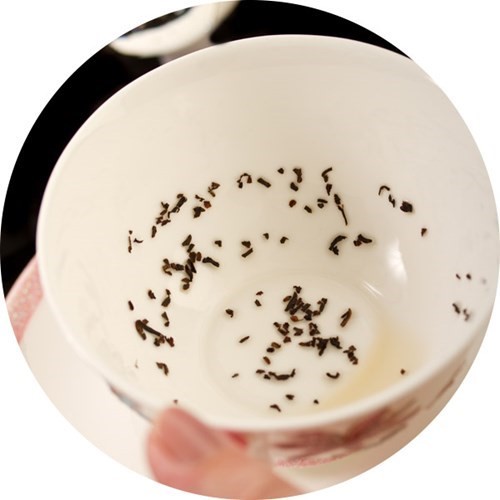
So how does it work exactly? There’s a lot of speculation on the accuracy of tea leaf reading to actually predict the future, but even if you’re not a believer then it’s still a really fun thing to try over afternoon tea.
When finishing off a cup of loose leaf tea, leaves often line the sides and base of the cup.
The idea behind reading tea leaves is that whilst drinking, a person’s movements affect the leaves swirling around so that when they settle the shapes are unique to them.
It is then up to the reader to interpret these shapes.
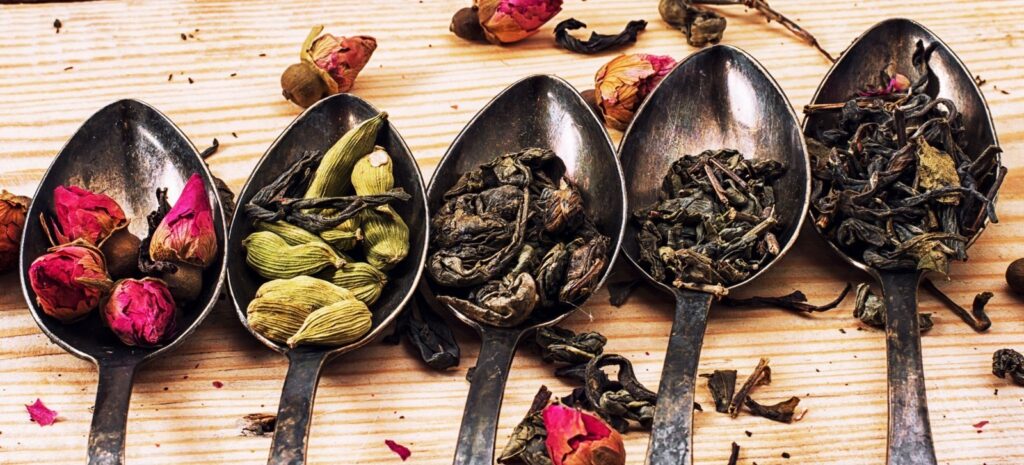
TIME TO CHOOSE THE TEA
Choose your tea of choice, green, black, herbal, it doesn’t really make a difference. Be sure that for best results use loose tea leaves as cutting open a tea bag to use the contents doesn’t work as well – the tea can be a bit too fine and won’t make the best shapes.
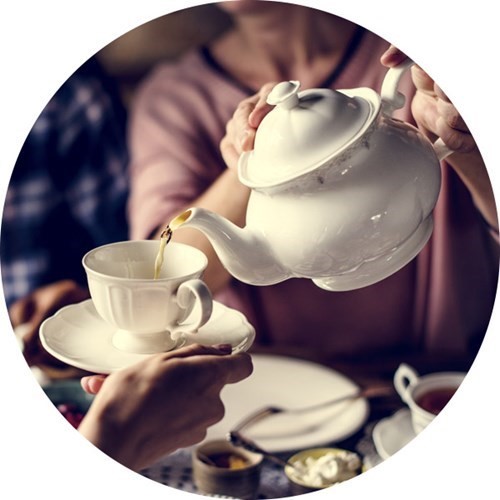
Put the tea into a teapot and bring it to boil. Grab a wide, flat bottomed cup that preferably has no pattern inside and slightly sloped sides.
Once the tea is boiled carefully pour out into the cup and enjoy!
Just before you’re finished, give the last bit of tea a little swirl around and start to get your imagination going by thinking about what you’d like to see.
As it’s all a bit of fun (like finding shapes in clouds!), try thinking about confirming your own intuitions about your life.
LOOSE LEAF TEA FOR TEA READING
WHAT SHOULD YOU LOOK FOR?
Tea leaf reading is open to interpretation, but there are some established ideas that can help to get you going:
STARTING POINT
The handle of the tea cup is supposed to be representative of the person who is getting the reading.
This means it’s a great place to start the reading and then progress in a clockwise direction around the cup. If the shape is closer to the handle then it means something is happening at present to you, rather than in the past.
SMALL LEAVES AND DUST
If these form a clear line it’s the indication of a message about a journey.
The length of the journey and the route it will take is determined by how the tea dust settles.
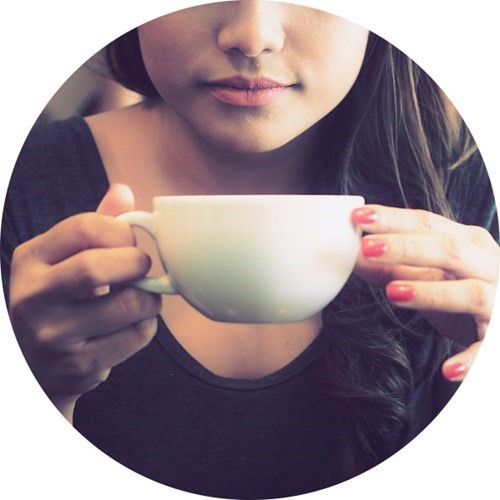
WHERE IN THE CUP
If a shape forms from the dark colours of the leaves themselves, it is supposed to be a negative omen, whilst if a shape is seen in the white of the cup beneath the leaves, it’s something positive.
An image that’s in the very bottom of the cup has something to do with the future, whilst closer to the rim of the cup means it is in the past.
LETTERS
People often claim to see a letter form in the tea. It’s believed that any capital letters are referring to place names whilst a lower case means someone’s name.
So L might mean something exciting in London for you, whilst l could be a sign of a blossoming romance with Liam.
AND WHAT ABOUT THE SHAPES THEMSELVES?
In the same way that people interpret dreams, shapes and symbols carry different meaning depending on an individual’s beliefs or superstitions.
For example, seeing a balloon might mean to you a celebration, a busy social life, or feelings of restlessness leading to travel.
It’s really all about adding interpretation so the shapes can apply to where you are in your life at the moment.
